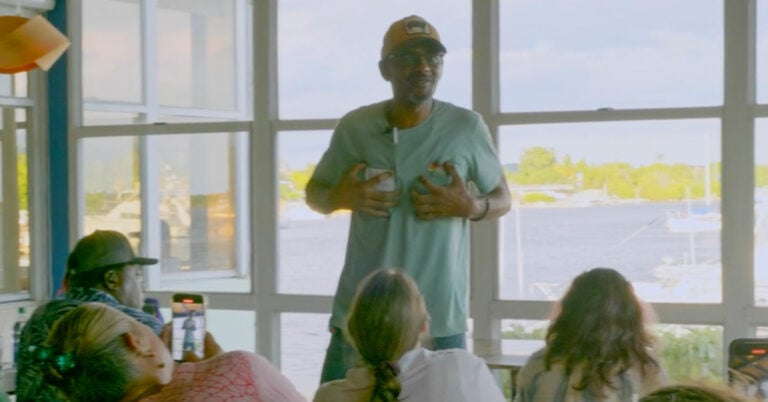Earlier this year, people who participated in Fund for Shared Insight’s participatory grantmaking project or who represented groups receiving grants through the process gathered at convenings in Puerto Rico or Hawai’i. On the last day of each of the meetings, facilitators asked grantees to pair up with non-grantee participants to share their reflections on the question: “What was the most significant change that took place due to the grant?”
The resulting report is an encouraging reminder of both the benefits of participatory processes in philanthropy and the potential of non-traditional modes of grants evaluation.
Regarding the impact of the general operating support grants, the report says many of the grantees
- shared about the significance of living more fully into their organizational missions and addressing self-defined needs; and
- mentioned having greater flexibility and freedom in their programs and operations.
Read ORS Impact report

About the grantmaking process, in which many of the grantees themselves participated, the report says many of them
- talked about feeling empowered by the participatory process; and
- mentioned the process feeling consistent with their community values and Indigenous traditions – for example, by having a low administrative burden to access needed resources.
When Shared Insight launched its grantmaking project, the Participatory Climate Initiative — which sought to involve people impacted by climate change in the funding decisions that affect them — we were curious to see what could be achieved through participatory decision-making approaches. Participants on the frontlines of the issue worked on design and grantmaking teams, defining the program’s purpose and parameters, and, ultimately, deciding where and how $2 million in grant money was disbursed. Shared Insight hired me and Winifred Oliff as consultants to run the program.
After the money was transferred, we asked participants what they wanted beyond the grants. Many of the participants in the design and grantmaking work, along with folks representing groups that received funding, asked for the opportunity to gather in person. They wanted to learn about the impacts of climate change in other communities, share the experiences and work that they had done in their own regions, and discuss shared challenges. They also wanted the chance to influence and contribute to conversations about how to improve philanthropy.
In response to this feedback, we organized the Hawai’i and Puerto Rico gatherings and put the focus on participant learning. But we saw the meetings also as an opportunity to ask participants their thoughts about the impact of the grants. We wanted to document their experience with the initiative, hear what had changed for them, and learn about their experiences.
To be honest, we were not sure what kind of impact the funding would have. These were one-time grants, and while the funds were unrestricted, they were relatively small and short term, between $50,000 and $75,000 over one year. We knew that the scope of work that each of these grassroots groups was tackling was much larger than the funds distributed. We certainly did not assume that the grants had been meaningfully impactful. It was essential for us to approach this question of impact with a lot of humility.
At the same time, we knew that evaluation is an under-explored area in the topic of participatory grantmaking. As advised by our participatory design team, we had thrown out grant reporting requirements to make the experience as low burden and accessible as possible, but we didn’t want to miss a chance to learn from the experiences of the funded groups and share those learnings with the field. Also, importantly, we saw evidence that the groups had accomplished much, and we wanted a chance to learn about that and celebrate it.
We worked with Shared Insight’s learning and evaluation partner ORS Impact to go beyond the traditional philanthropic evaluation toolbox to draw out potential measures of impact.
ORS developed an activity that used the Most Significant Change (MSC) methodology, a qualitative, not quantitative, approach to evaluation that typically emphasizes dialogue and storytelling. During the MSC exercise at the Shared Insight gatherings, pairs of grantees and non-grantees joined up for 30 minutes of conversation, during which we heard not only talk, but laughter and even applause. Having a space to appreciate and celebrate what each group had been able to do appeared to be a joyful experience for participants.
At the same time, we recognized that having Shared Insight staff and funders participate in, or be present during, the exercise could change the conversations or raise questions about power dynamics. For those reasons, we read the ORS report understanding its limits. Still, the enthusiastic responses shared shed a positive light on the participatory process and point to alternative ways to evaluate the impact of grants that do not rely on conventional grant reports.
We are grateful for all the participants who were willing to share their insights and reflections, and for ORS who created the report based on what was heard. We plan to share further reflections and learnings from the Participatory Climate Initiative over time, including through our new Participatory Philanthropy Toolkit, designed to inspire and inform other funders’ journeys towards more participatory practices.
About the author:







